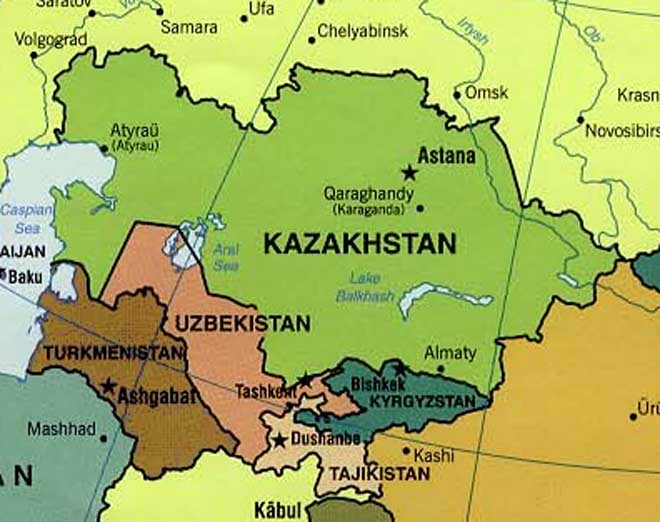Azerbaijan, Baku, October 28 / Trend , V.Zhavoronkova /
To solve the energy problems of Central Asia, the countries in the region need to compromise and involve regional organizations in discussions of this issue, said Russian expert on Central Asia Leonid Gusev.
"I think that in this case, all countries should try to reach a compromise, it needs to involve Russia in the negotiation process, involve mechanisms of EurAsEC and SCO," Senior Fellow at the Institute of International Studies of the Russian Foreign Ministry's Moscow State Institute of the International Relations, Gusev, told Trend via e-mail.
There is a probability for Kazakhstan's withdrawal from the regime of parallel work of unified power system of Central Asia (UPS CA), Spokesman of the KEGOC national company, Marat Muhamedsaliev said.
According to him, the main reason for withdrawal from the UPS CA was siphoning off energy. "Non-contractual use of energy by the UPS, in particular Tajikistan, reached 100 million kW-h," said the representative of KEGOC.
Muhamedsaliev explained this fact through the unresolved issue of transit of Turkmen electricity through Uzbekistan to Tajikistan, which, in turn, threatens the transshipment of transit lines of the North - South.
In the absence of adequate measures by partners to UPS, to provide quality and reliable electricity to consumers of Kazakhstan, KEGOC intends to initiate and coordinate with the government the issue of withdrawal from UPS in November, said Muhamedsaliev. He emphasized that the energy system of Kazakhstan is self-sufficient, and in case of withdrawal from the system, Kazakhstan will be able to meet the domestic demand for power.
"So, declaring its withdrawal from the UPS, Kazakhstan wants to show that it was not satisfied with the actions and Tajikistan and Uzbekistan," said Gusev. This step of Astana will affect the living standards in countries of Central Asia.
If not to solve the problem of electricity in the region, it would end with sharp confrontation between the countries of Central Asia, which can lead to undesirable consequences in the region, for example, to provoke unrest, in which extremist Islamist groups will be involved," said Gusev.
This situation developed because having rich energy resources, Central Asia differs with uneven in their distribution throughout the region. If countries, among which there are countries located in the lower areas of the Amu Darya and Syr Darya - Kazakhstan, Uzbekistan and Turkmenistan, are rich with oil and gas, the states located in the upper areas of the rivers - Kyrgyzstan and Tajikistan - almost do not have them.
However, countries located in the upper areas of rivers and controlling their sources have much more important resource - water - in the dry climate of Central Asia, said Gusev. About 80 percent of water resources in the region is formed on the territory of Kyrgyzstan and Tajikistan, but is consumed by Kazakhstan, Uzbekistan and Turkmenistan.
Most of the watershed is formed by the Amu Darya and Syr Darya, which originate in Kyrgyzstan and Tajikistan. "In Kazakhstan, for example, runoff of the Syr Darya is formed at six percent, and withdrawals from it is 38 percent, a similar situation exists in Turkmenistan and Uzbekistan," said the expert.
Not having their own fuel resources, as well as experiencing difficulties with their purchase, Kyrgyzstan and Tajikistan are planning to solve their energy problems by building new power plants, launched in the Soviet period, said Gusev.
According to the expert, construction of hydroelectric power station is a sharp rejection from Uzbekistan, and after certain time, Kazakhstan.






